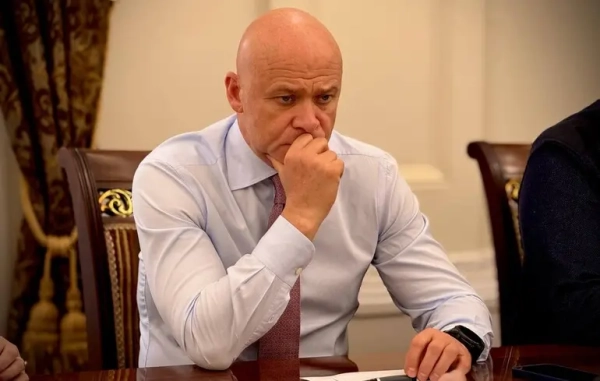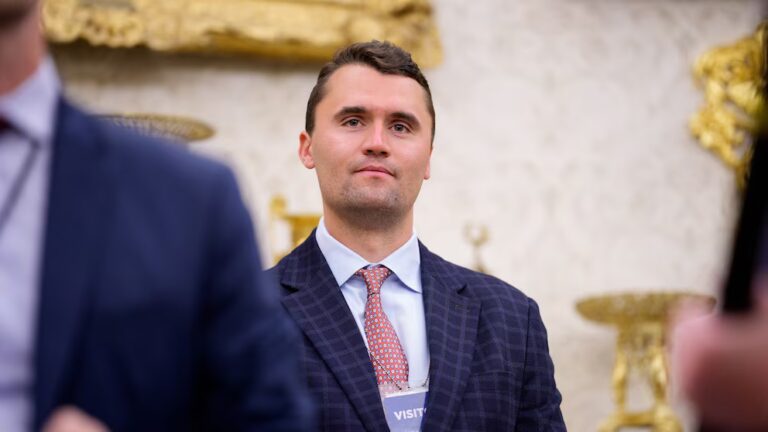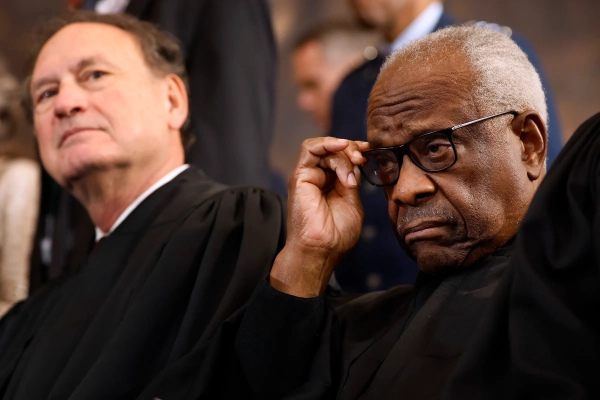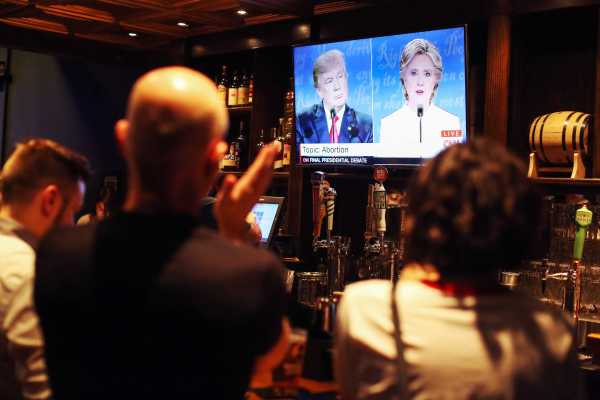
If you spend a lot of time consuming news, there’s a good chance you’re doing politics wrong.
And you’re not only doing it wrong, you probably also think you’re doing it right, which means you’re almost certainly making things worse.
This is the thesis of a new book called Politics Is for Power by Eitan Hersh, a political scientist at Tufts University. His book is half lament, half rallying cry. A self-identified liberal, Hersh tries to understand why the left stopped pursuing power and instead started treating politics more and more like a spectator sport.
He coins the term “political hobbyism” to capture the problem. “We participate in politics by obsessive news-following and online slacktivism, by feeling the need to offer a hot take for each daily political flare-up, by emoting and arguing and debating, almost all of this from behind screens,” Hersh says. Many of us think we’re politically active — but in fact, we’re doing little more than signaling who we are to other people. We may be emotionally invested in politics, but we’re not actually committed to solving problems.
I spoke to Hersh about how politics became mere sport for so many people, why it’s particularly a problem on the left, and what he thinks people should do if they really want to organize and change the world around them.
A lightly edited transcript of our conversation follows.
Sean Illing
What is politics actually about for you?
Eitan Hersh
For me, politics is about working with other people to influence the government. And you can influence the government by convincing people who they should vote for, or by interacting with politicians and lobbying them; in either case, you are getting these other people, whether they’re politicians or citizens, to take some action they wouldn’t otherwise take.
The problem is that this just doesn’t describe how most people engage in politics. This is sort of the starting point of the book.
Sean Illing
Well, you go even further than that. You argue that liberals, in particular, are doing politics wrong.
Eitan Hersh
The reality is that the people who spend the most time consuming news and arguing online are disproportionately college-educated white people, and right now that demographic is predominantly Democratic. This isn’t to say that this sort of behavior doesn’t happen on both sides, but it’s mostly on the left.
In a lot of ways I’m liberal, but the message of the book is conservative in the sense that it’s prioritizing local engagement over national engagement. I think we need more institutional engagement with religious organizations, for example. Some people see that as a conservative message, whereas I just think that’s what building power requires.
Sean Illing
The issue here is something you call “political hobbyism,” an approach to politics that has become dominant. Explain what that is.
Eitan Hersh
Political hobbyist is a catchall term for the person who spends a lot of time consuming news or signing online petitions or engaging online with people about this or that issue. They mistake this for actual politics, but it’s not because it doesn’t contribute to power-building.
Sean Illing
Why not?
Eitan Hersh
When you’re a hobbyist, you’re learning the wrong information and practicing the wrong skills. You are typically learning about big national news items, and oftentimes it’s just drama. So a hobbyist might learn all the details of the Mueller report and feel that’s important to know and will spend hours and hours on it.
But then if you asked him how he could get involved on some issues of importance in his local community or in his state, or where the pressure points are in his community to influence government, he has no idea. He’s just caught up in the national news cycle and he’s not actually improving anything.
The hobbyist is also learning the wrong political skills. Online politics is all about provocation and signaling outrage. But changing people’s minds, turning your vote into many votes, requires empathy and face-to-face engagement. Not only are you not doing this online or when watching cable news, you’re learning exactly the wrong skill set.
Sean Illing
Why are white, college-educated liberals most likely to engage in political hobbyism?
Eitan Hersh
There are a few reasons. College-educated white people are likely to be in a social setting where they feel it’s a civic duty to participate in politics and to stay informed. They might find learning political facts to be intellectually gratifying. At the same time, the status quo for white, college-educated Americans is pretty good. They have good jobs. They aren’t being conscripted into military service like past generations.
So as much as they might lament polarization or despise this or that politician, they aren’t willing to roll up their sleeves and build political power. It’s only if you don’t need more power than you already have that you could possibly conceive of politics as an at-home leisure activity.
No one is spending more time learning facts and consuming news than college-educated white men. But research on real engagement — volunteering for groups and campaigns — shows it’s overwhelmingly women and disproportionately blacks and Latinos who are doing the real work of politics. Comfort with the status quo among college-educated whites, especially men, seems like the most likely explanation.
As to why this is more of a liberal problem than a conservative one, right now the white college-educated population is much more Democratic than Republican. Of course, there’s plenty of hobbyism on both sides, but right now this group tends to lean Democratic.
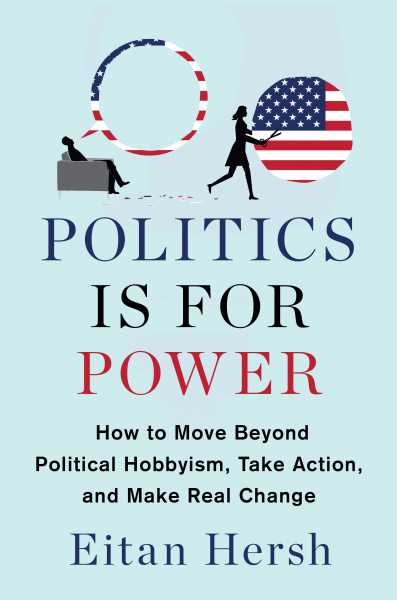
Sean Illing
But there are examples of genuine activism on the left, like Black Lives Matter protests or the Women’s March or the airport protests over Trump’s travel ban. Are these just exceptions to the rule, or do you not consider them politically impactful?
Eitan Hersh
Those are all, in their own ways, very useful and meaningful protests. Sometimes protests are strategic, and sometimes they’re cathartic. The cathartic ones are organized quickly, and the goal is mostly to let off steam. But other times, protests really are strategic in terms of recruitment or raising awareness of an issue.
I think of BLM protests as strategic in terms of raising awareness, but it’s also just a first step. The long-term goals of that movement require people to actually engage in conversations with police departments about what those police departments are doing and how they’re doing it. And it requires working on the ground wherever you live to push the right buttons.
I want the political hobbyist to struggle with this question, as I did while writing it: If they attended a protest or a march, what was it for them? Was it cathartic, or was it the beginning of a concrete plan of action? If it was the former, then it was just hobbyism. If it was the latter, then great.
Sean Illing
What do political hobbyists get out of this kind of superficial engagement with politics? Emotional satisfaction? Is it about signaling who we are to other people?
Eitan Hersh
It’s a shortcut to engagement. You get to feel connected to a sense of community and a sense of mission without doing any heavy lifting, which is partly why online engagement is emotion-driven. If you feel angry at something from your couch, you feel somehow connected to it, even if you haven’t done anything.
Sean Illing
You’re preaching boots-on-the-ground activism and face-to-face interaction, especially with people on the other side. What do you say to people who are cynical about the possibilities of persuasion, who feel like the chasm is so deep that it’s no longer possible to engage with political opponents?
Eitan Hersh
I guess I would say that they’re wrong. Most of the people you engage with in real life are not at all like the caricatures in your head or online. Most of the people you’ll encounter in your neighborhood or in a community group aren’t raving Alex Jones followers. In reality, most people simply aren’t that invested and don’t have deeply held positions, and they’re open to persuasion if you’re open to being kind to them.
Sean Illing
I’m curious why you think political hobbyism has become so common. What changes in the culture or political media ecosystem have pushed in this direction?
Eitan Hersh
I know you’ve written a lot about changes in media technology, and I think that has definitely made it easier to engage more shallowly. It’s not any harder to go to a community meeting once a week today than it was 30 years ago, but it feels harder relative to the alternative.
I also think that deliberate decisions by the political parties and by the federal and state governments have taken power away from local groups, have taken money away from grassroots organizing, and have favored consultant-driven activism that has probably created a scene that favors hobbyism.
And look, I think a lot of people just don’t have the energy or time to do real political work, which is hard and demanding. And plenty of people don’t necessarily make a deliberate decision to not get involved; they just don’t see any pathways to meaningful participation. That’s very much part of the problem.
Sean Illing
The right seems to understand power better than the left, or perhaps there’s something about the nature of conservatism that lends itself to the sort of politics you’re advocating.
Eitan Hersh
I think you’re onto something there. A bottom-up approach to political change that focuses on the local stuff or the local institutions, like churches or gun clubs, is just more common on the right. We used to think more about grassroots organizing focused on unions, for example, but unions have collapsed while churches have gotten disproportionately Republican.
Again, some of the key demographics of the left, like college-educated white people, don’t attend any religious services at the same rate of people on the right, and so there’s less community engagement. And some of the paramount issues for the left, like race or climate change, feel like non-local problems, and that itself is a deterrent.
Sean Illing
I think it’s important to say that some of the decline in organizing on the left is the result of conservatives actively destroying mediating institutions like labor unions, which helped organize working-class voters in this country for decades.
Eitan Hersh
You’re right that unions have been undermined. Conservatives have done a good job getting the government to not favor organized labor. But no one is stopping liberals from forming their own aid associations or from forming churches that speak to them, or by building community organizations.
Whenever I talk about political hobbyism, people squirm to find reasons why it’s someone else’s fault. One of the reasons I did this uncomfortable thing for a political scientist, which is talk about my own political engagement, is so that I could tell the reader I know all of their excuses, because I made them all myself.
Sean Illing
What’s your advice for people who want to get involved and help build political power?
Eitan Hersh
I think they get started by building a cell of friends to do it with them locally, and they should be thinking about how they can dedicate at least one night a week to this, or a certain number of hours. The mindset is not “How can I influence the next election?” The mindset has to be “I’m entitled to my own vote, but how many more can I influence?”
I profile lots of people in the book who are taking this kind of approach and accomplishing amazing things. They’re showing that if you can get 100 or 200 or 1,000 people to share your values and to cast a ballot or show up to an advocacy meeting, you really can make a huge difference.
Sourse: vox.com
